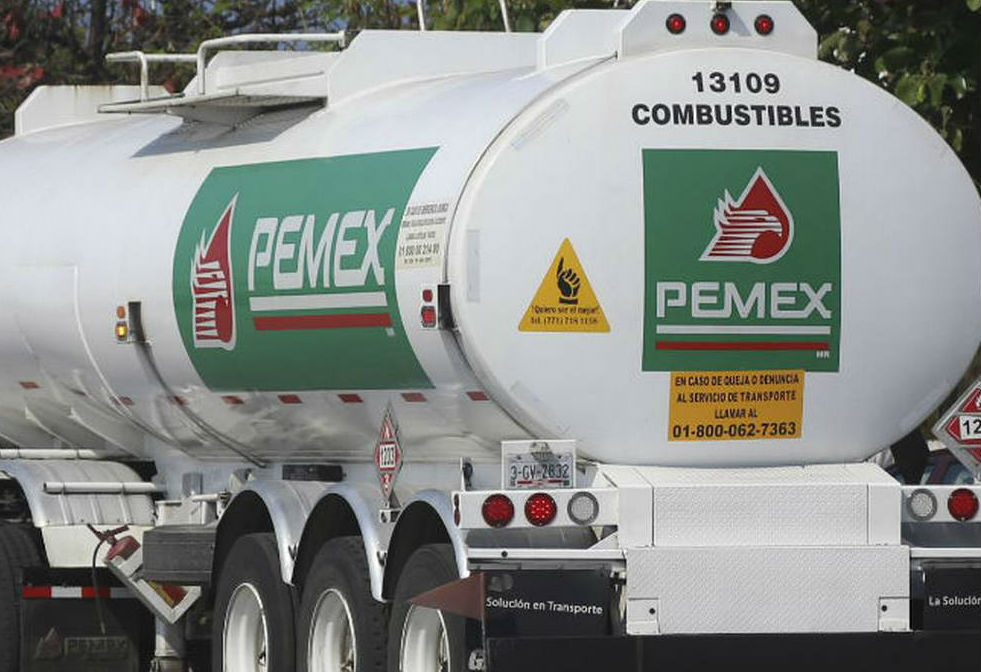Mexico Offensive Against Fuel Theft Leads to Reduced Use of Pipelines
1/7/2019
GUADALAJARA, Mexico (Reuters) – An offensive by Mexico’s new government against fuel theft at one of the country’s main refineries has led to days of shortages at gas stations in several central states, as authorities move more fuel by tankers and less by vulnerable pipelines.
A Reuters witness said many gas stations in the city of Guadalajara in Jalisco state were closed Sunday, including those operated by state oil firm Pemex, Spain’s Repsol and BP. There were long lines of motorists at those that were operating.

“I’ve gone to 10 gas stations and nothing, there’s none at any of them,” said Alan Delgado, trying to fill his Buick truck at a BP gas station in Guadalajara. “This is a serious and critical situation because it complicates work and businesses.”
The shortages followed the closure of a pipeline from the Salamanca refinery in the central state of Guanajuato, and as Pemex started using more tankers to transport fuel.
Theft by gangs and oil industry workers from Mexico’s state-controlled refineries is a major drain on government resources, but the measures taken to tackle the crime could also weigh on the economy if shortages drag on.
Violent criminal gangs have for years used fuel theft to supplement their income, bleeding money from state coffers and driving bloodshed as they fight rivals and extort oil workers.
President Andres Manuel Lopez Obrador, who took office in December, confirmed on Friday that less fuel was being sent through pipelines.
“I ask citizens for understanding and support, because we need to solve this problem together. We are trying to get it resolved soon,” Lopez Obrador said in a televised speech.
Obrador has vowed to tackle theft “outside and inside” Pemex, or Petroleos Mexicanos, which estimates that fuel worth more than $7.40 billion(146 billion pesos) has been stolen since 2016 alone.
The president said last month that Mexico’s armed forces would take part in security at Pemex installations around the country, including its refinery in Salamanca.
Fuel theft there has been linked to a surge in violence, according to Guanajuato state Governor Diego Sinhue.
The Mexican Association of Gasoline Station business owners warned its members Jan. 3 that no fuel was being transported via the pipeline from the Salamanca refinery.
“You are free to take measures that benefit your customers, to limit the sale (of fuel) to 10 liters per car or whatever you consider necessary to serve the public,” the association said.
It was not immediately clear whether opening that pipeline would reduce shortages in other regions.
Pemex said on Saturday that it is “preferring the use of safer means of transport, which means changes in the logistics for delivery to service stations,” leading to delays in the states of Hidalgo, Mexico, Jalisco, Michoacan, Guanajuato and Queretaro.
Pemex said it is aiming to boost distribution in the affected states by up to 20%, transporting fuel by tanker trucks and trains.
A May 2017 study commissioned by the national energy regulator found that thieves, between 2009 and 2016, had tapped pipelines roughly every 0.86 miles (1.4 km) along Pemex’s 870-mile (14,000-km) pipeline network.
The government has not made clear if they see road and rail transport as a long- term solution for fuel distribution.
Transporting fuel by road and rail is 12-16 times more expensive than by-pipeline, said Gonzalo Monroy, a Mexico City-based oil analyst.
“If this keeps happening and expanding to other parts of the country, the Mexican economy is going to have a very tough first quarter,” said Monroy.
Related News
Related News
Sign up to Receive Our Newsletter

- 1,000-Mile Pipeline Exit Plan by Hope Gas Alarms West Virginia Producers
- Valero Plans to Shut California Refinery, Takes $1.1 Billion Hit
- Three Killed, Two Injured in Accident at LNG Construction Site in Texas
- Boardwalk’s Texas Gas Launches Open Season for 2 Bcf/d Marcellus-to-Louisiana Pipeline Expansion
- Traverse Pipeline Approved to Move 1.75 Bcf/d of Gas Along 160-Mile South Texas–Katy Route
- New Alternatives for Noise Reduction in Gas Pipelines
- Construction Begins on Ghana's $12 Billion Petroleum Hub, But Not Without Doubts
- DOE Considers Cutting Over $1.2 Billion in Carbon Capture Project Funding
- Valero Plans to Shut California Refinery, Takes $1.1 Billion Hit
- Newsom Seeks to Aid Struggling Refiners Following Valero’s California Exit
Pipeline Project Spotlight
Owner:
East African Crude Oil Pipeline Company
Project:
East African Crude Oil Pipeline (EACOP)
Type:
TotalEnergies in discussions with a Chinese company after Russian supplier Chelpipe was hit by sanctions.
Length:
902 miles (1,443 km)
Capacity:
200,000 b/d
Start:
2022
Completion:
2025




Comments